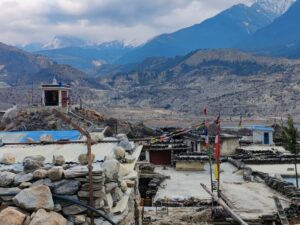Photo: Man walks under yellow sky (no filter). Credit: Bjorn Vaughn
 In dry years, Indonesia peatland fires burn for months and have become near-annual events. Smoke exposure from 2015 alone is expected to lead to up to 100,000 premature deaths and produced carbon emissions four-and-a-half times those of the entire UK economy. Indonesia’s Central Kalimantan province on the island of Borneo is home to extensive peatlands and is the epicentre of the country’s wildfires and the focus of this research project.
In dry years, Indonesia peatland fires burn for months and have become near-annual events. Smoke exposure from 2015 alone is expected to lead to up to 100,000 premature deaths and produced carbon emissions four-and-a-half times those of the entire UK economy. Indonesia’s Central Kalimantan province on the island of Borneo is home to extensive peatlands and is the epicentre of the country’s wildfires and the focus of this research project.
Although most fires in this region are started deliberately, primarily as part of land management practices – mostly incentivized by oil palm and acacia expansion, a combination of factors including deforestation and climate change play a role. Project “KaLi” (Kalimantan Lestari – Sustainable Kalimantan) will take an interdisciplinary and cross-sectoral approach to understand the causes, impacts and possible solutions of peat fires.
A key focus of the work being led by UEA (Rachel Carmenta) and Leeds (Rory Padfield) aims to expand impact metrics to bring a better understanding of the multi-dimensional burden of landscape flammability for local communities, specifically impacts on human well-being and relational values. The lived experience of extensive fires and the toxic smoke that follows is not well-understood and yet previous research suggests that a language of communication for change focused on the humanitarian dimension may generate more concern than one focused on carbon.
The project aims to develop an interdisciplinary understanding of peat fires, drivers and impacts in order to synthesize findings and co-create with local partners and communities, solutions that more equitably reduce fire risk and vulnerabilities.
Project partners include Indonesian government agencies and departments, established NGOs and UK and Indonesian universities. Institutions involved are Badan Restorasi Gambut (Peatland Restoration Agency), Center for International Cooperation in Sustainable Management of Tropical Peatland (CIMTROP), Yayasan Borneo Nature Indonesia and the universities Gadjah Mada, Indonesia and Palangka Raya, universities of Exeter, Leicester, Leeds and East Anglia, and the London School of Economics.
Publications associated with the project
Thornton, S. A., Setiana, E., Yoyo, K., Harrison, M. E., Page, S. E., & Upton, C. (2020). Towards biocultural approaches to peatland conservation: The case for fish and livelihoods in Indonesia. Environmental Science & Policy, 114, 341-351






